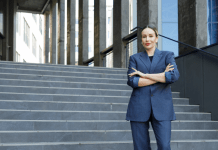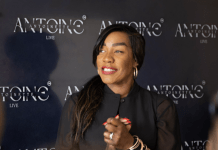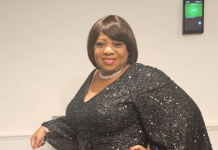In a world where business often moves at the speed of transactions, Lata Gullapalli moves with intention. With over 25 years in investment banking, from South Asia to the UK, she has mastered the art of high-stakes deals while building bridges across sectors, cultures, and communities. As Chairperson of The Savoir Faire Company and a trusted voice on multiple corporate and charitable boards, she blends sharp financial acumen with a deep commitment to ethical leadership, inclusive mentorship, and systemic change.
From taking companies public to mentoring rural women entrepreneurs across continents, Lata is redefining what it means to lead with both power and purpose. Her story is not just about success—it’s about significance.
You’ve had a remarkable career across continents in investment banking. What initially drew you to mergers and acquisitions, and how has your perspective evolved over the past 25 years?
Finance and the financial markets have always fascinated me, right from school days when teachers used to talk of the economic impact on markets or national debt that countries pledged gold to secure or issued bonds for—anything to do with finance, really. I have enjoyed working in every area of investment banking—I did equity sales, very little, though; analysis, again, very little time; and corporate finance, too.
I found my passion in mergers and acquisitions, which is perhaps the toughest division in an investment bank.
It has brought out the best in me-I have learnt the most from it- getting diverse people to trust in each other and work to a common goal, getting them to put their companies together which could sometimes be their life’s work and so a very touchy subject, as well as, designing nuanced products for the client- that is such a tough challenge as it could be very costly to make a mistake.
I guess I have always been a bit of a disruptor. Thinking outside the box, perhaps. So that’s helped me work through some tough transactions.
As Chairperson of The Savoir Faire Company, how do you balance strategic oversight with shaping governance and future-focused human capital pipelines?
Governance is the key to a successful business. There should never have been any doubt as to whether the company needs to comply or not.
As we go along, we see that a long-term strategy is easier with good governance. We are having more and more educated youth wanting to work for companies with good governance and diversity, equality and inclusive policies and corporate cultures.
The most difficulty we find is in fact with the middle to senior management, and it is clearly not possible to change someone. They have to change themselves, with the changing needs of the present and the coming future.
But we have to be the change, as change is a part of being a going concern. Be the water as it were, taking the shape of the terrain we flow over.
Your work spans both corporate and nonprofit boards. How do you approach leadership differently in these two spheres — or do you believe great leadership is universal?
Leadership is a skill everyone has and can hone. In the present-day context, everyone is a leader. This means everyone is responsible for their own skills and expertise that they bring to the task, and for the execution of it as well.
We work mostly in teams and collaborate with each other in today’s world, and for that, we see the need to take ownership of our tasks and give our best there. Different people are leading the teams at different times, depending on what is being done, and it’s all okay to have that, even when there is one person who is ultimately responsible for the whole team.
That is the new concept of leadership. And it is universal.
You’ve led IPOs, joint ventures, and global capital raises. What do you believe is the most underestimated skill an investment banker must master today?
The skill that is the key to being successful, and I believe this is very key for investment banking, but not just for investment banking, is the realisation that we have to be very nuanced in our dealings with people. Communication is key, and since it’s largely teamwork, how the dynamics of the teams play out is a very big factor for success or otherwise. And I don’t mean the deal going forward or not, but whether we have given the client the right advice or not.
So, pay serious attention to relationship management.
The restructuring of the Harijan Seva Sangh is a significant legacy project. How do you honor its historic roots while bringing modern organizational practices to the table?
There is no question that we need to preserve the historic roots and the tradition as well as the way the organisation was set up, its objectives and the purpose for its existence. All these have to be preserved, and the institution has to be reconstituted to take its place in the modern changing and evolving context of the world, where AI and so many other innovations are taking hold and at super-fast speeds.
Just like the President and the entire committee, as well as the staff connected with the organisation, are committed to the ideals, while looking to the future, I too am working to get the best of both worlds for the organisation.
Your mentorship program for rural women entrepreneurs has led to real business creation. What do you believe made this initiative so impactful, and how are you scaling it internationally?
So little is being done about mentoring women entrepreneurs in rural areas at the moment- it’s so important we have the funds as well as the people, suitably trained in working in the rural areas.
These women are powerhouses in themselves and strongly believe they can do business.
And why women? Women build communities and communities lift the economies, and so lift nations, isn’t it?
The key issue is to have these women take us seriously. Even if we are talking sense, these women are smart and have thought through their business idea.
We have to gain the trust of these women before we can get them to listen to us.
Getting them to come and participate was tough, but as I have reworked with the team on the approach, we seem to be making better progress.
It’s not like we mentor them and leave them- we continue to visit them from time to time to see how they are doing and if they need any help along the way.
The program gives them the tools to understand what a business is doing and what they need to watch out for. The profit, the return and the repayment of the loan.
As for going international, whenever I spoke of this project, I found someone interested in launching it in their own country.
And that’s how it’s moving to many countries now.
The thought is the same. To mentor rural women entrepreneurs so they can run businesses and become financially independent.
You are reshaping how charitable organizations think about profit and impact. What mindset shift do you believe is most urgent in the philanthropic sector today?
Profit or making money itself was a phrase not used at all some years ago. It was considered low to speak of return or money made, even if it was made by working so hard and putting one’s everything on the line.
I have tried to explain this that to do good or to do charity, as to do business, one needs resources, either self-made or borrowed, for business and donated to charities.
But if we as charities show that we are capable and we are doing the work we can do and are making some money out of it, it gives credibility to our cause as well, so we are not only sitting waiting for handouts. We work hard too and use our money for impact, just like corporations. They may have a higher profit focus, but that’s changing too- the corporates are leaning towards community impact, and the charities are learning about profit. So it’s a win-win for all.
Your diversity course in Jordan’s universities is an impressive model. What do you hope young students—especially women—take away from this curriculum?
The young are the ones who are at the cusp of the huge changes we are seeing with the information explosion in the form of connectivity or AI-based sharing, which is faster than thought, even perhaps. The tools they need to navigate this literal dumping of gigantic amounts of information without getting snowed under and making sense of it all, while giving their best to their lives with the skill sets they need and practical tips, are most essential.
We need to go back to teaching younger and younger children about the human side of their skill acquisition. They will educate themselves with academic knowledge or skill training as they need for their future workplaces, but they need to know how to navigate human interactions in those workplaces. To have the right thought process to think through what is being said or told around them.
I find girls and boys are most impressive in showing the keenness to learn – if the topic is relevant to them.
When I began, no one knew what I was going to be teaching, and many walked in just to see what it was about. But at the end of the 1st day of the course, they were hooked and eager and came even earlier than I to the class for the rest of the days. This just shows it is essential to share the skills I have acquired in my journey so the next generation benefits.
With success as both a business leader and bestselling author, how does storytelling influence your leadership style and global voice?
My work has been in many countries and in many situations, which have been difficult at many times and tough as well as delicate, nuanced and needing a light touch. So many years of doing this fine balance between high finance and interpersonal relationships have taught me a lot about human nature. This, I felt, is like many mini case studies, and if I can share them with those I mentor, teach, or those who read my stories, I can pass on my learning.
For me, that’s my leadership style. To share what I know and have done so that others may learn from it.
It’s a bit like meeting someone and having a long chat; you can learn so much from that. Of course, you can learn the same things by going and doing all those roles in all those places that I did, and perhaps the learning would be similar.
A bit like reading several books or living that life to learn it. I believe one must do both to be a continual and lifelong learner. Just like the senior leaders or young leaders or managers or bankers, or students share their thoughts, and that gives me new knowledge as well.
You’ve received numerous leadership awards and global recognition. What drives you at this stage of your career, and what legacy are you most focused on building next?
Awards and accolades are all recognition for what I have been doing, and I am very humbly grateful for every one of them. It was just my intention to share what I have learnt over the years of a long career as an investment banker and now as a board member and trustee of charities. I have always been mentoring and supporting the next level or round of leaders who would replace me, perhaps and do things in their style with my experiences in their minds as well.
If it is a legacy to pass on my knowledge, I take the responsibility seriously.
















